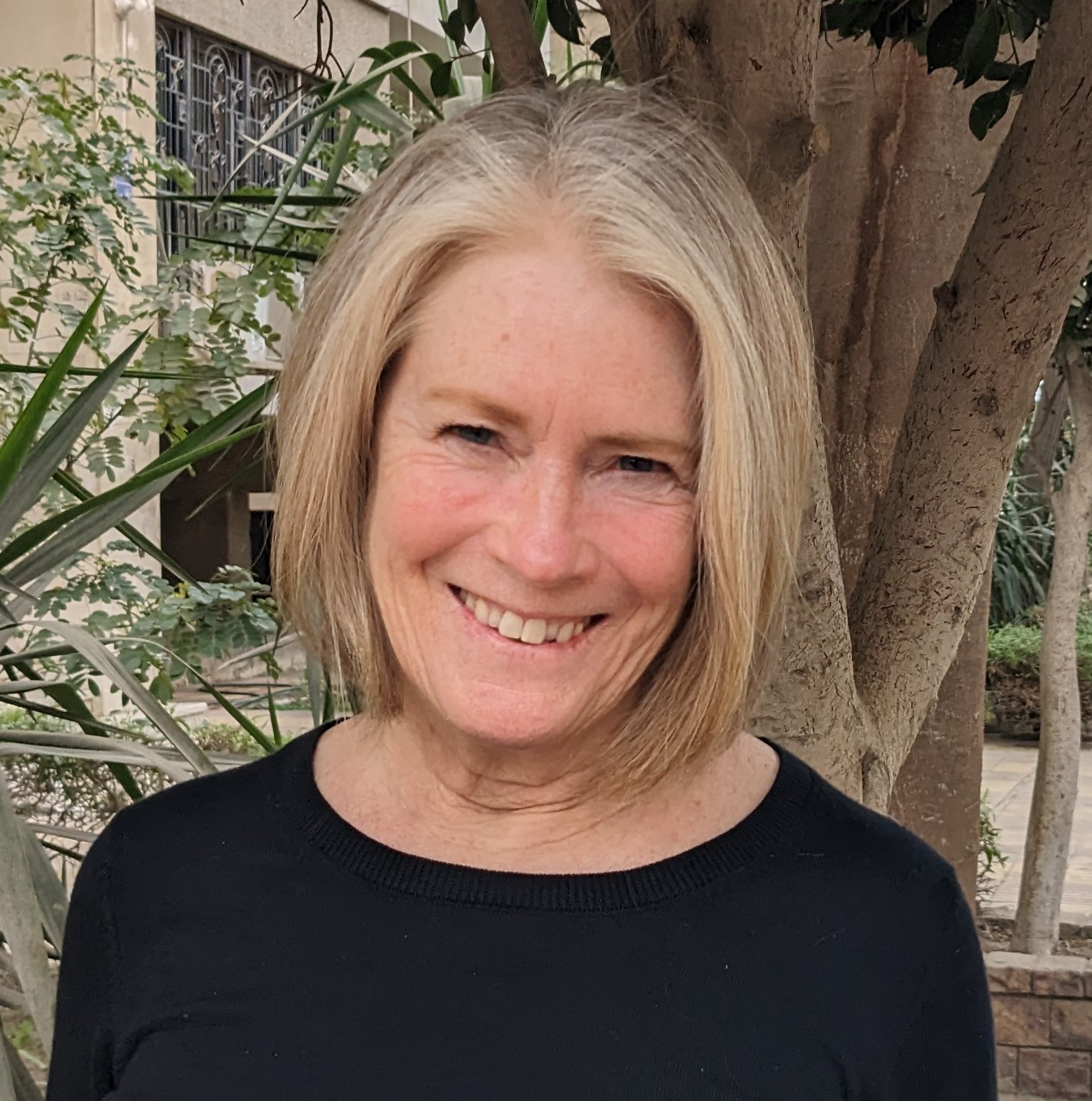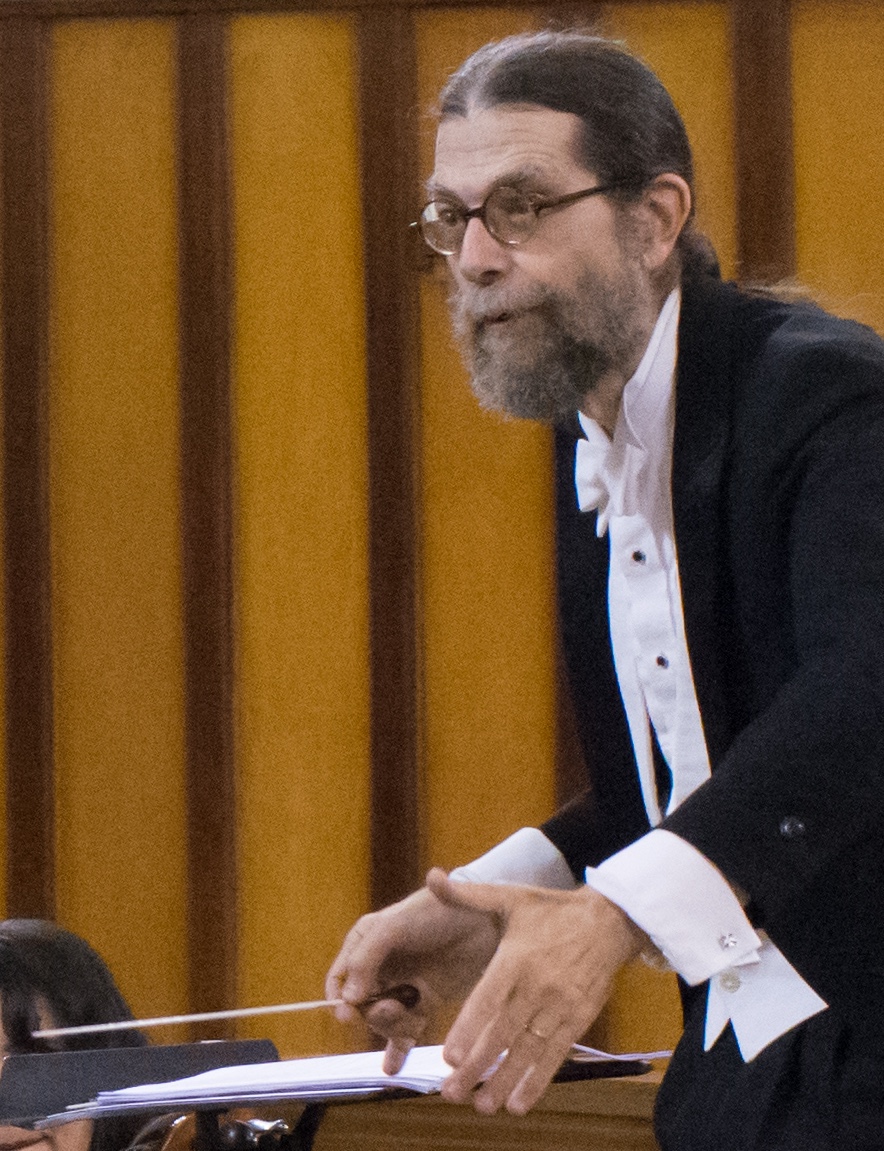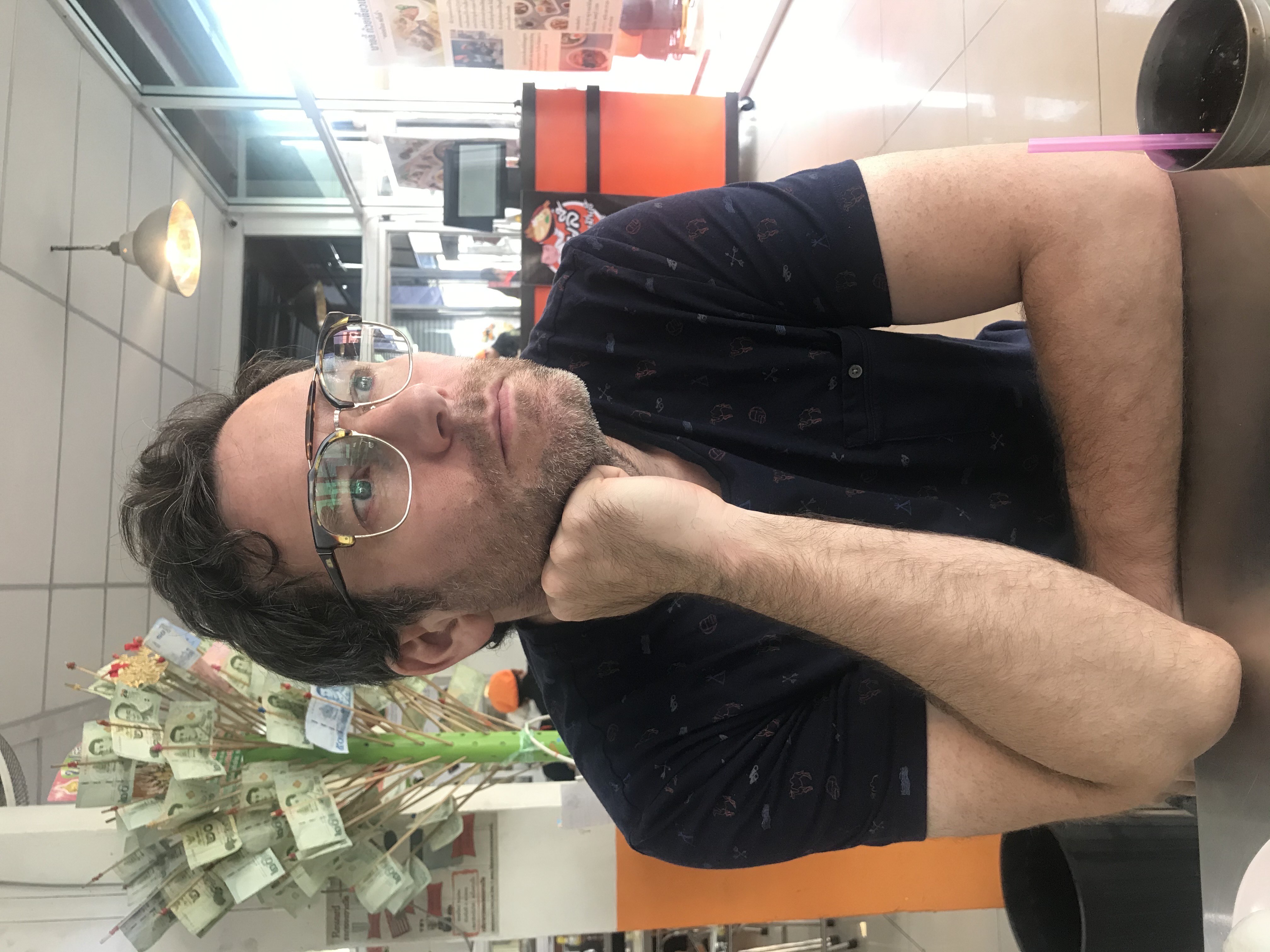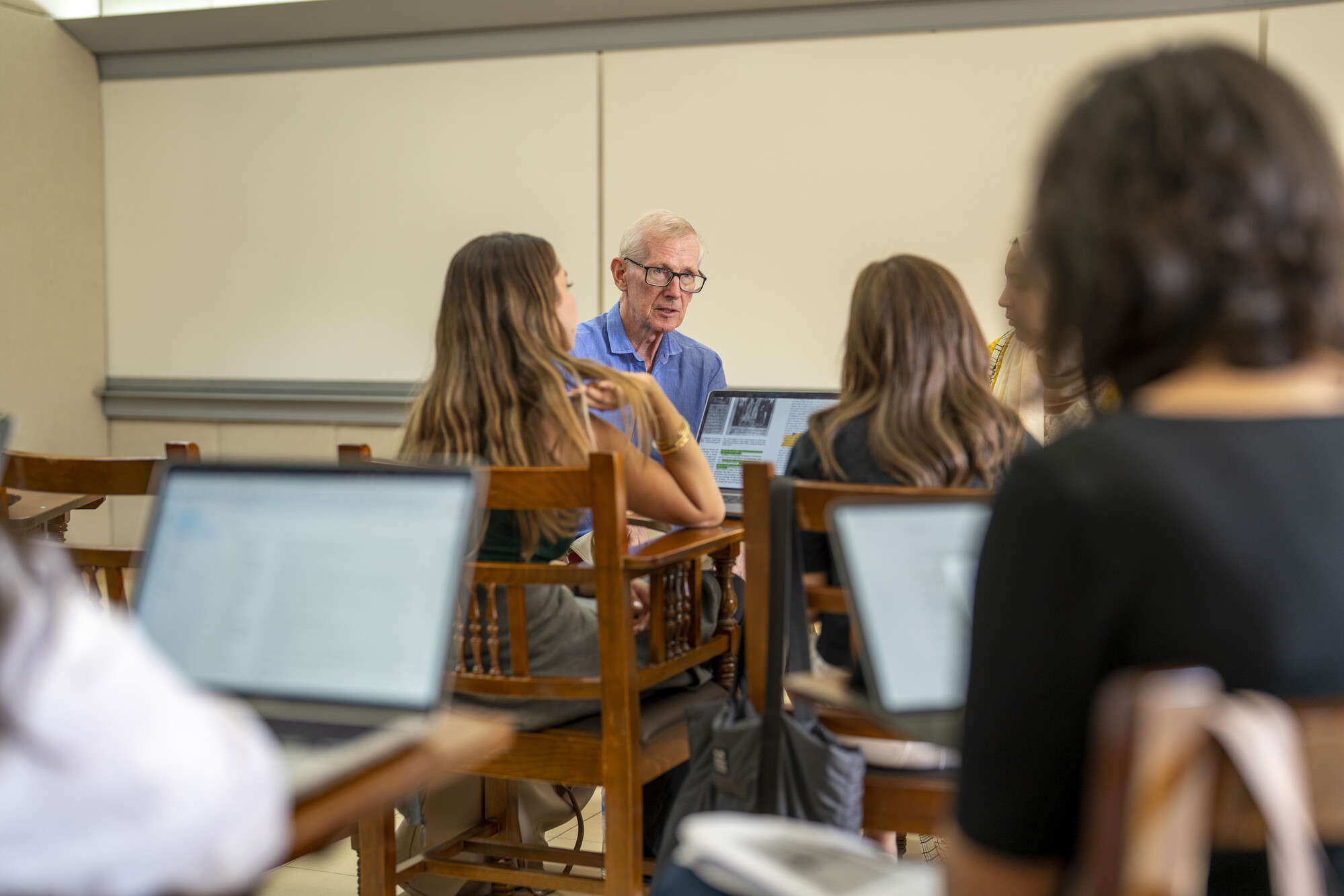
HUSS Research Seminar Series
Invited speakers present on topics of their choice that are expected to appeal to a wide range of audiences. Invited speakers include the School of Humanities and Social Sciences (HUSS) faculty, faculty from other schools at The American University in Cairo (AUC) who share similar research or creative interests within the area of humanities and social science, or, in special circumstances, scholars from outside AUC. Presentations focus on work in progress or research/artistic projects that have been concluded. The seminar is open to AUC faculty, students, alumni, and also to the public. The presentations are usually for 45 minutes, followed by a 15-minute questions and answers session. The seminar is held multiple times during the semester during the assembly hour from 1 - 2 pm at the Tim Sullivan Lounge.
HUSS Research Seminar Series for Fall 2025
Sunday, November 23, 2025 1-2 pm
Tim Sullivan Lounge, HUSS building
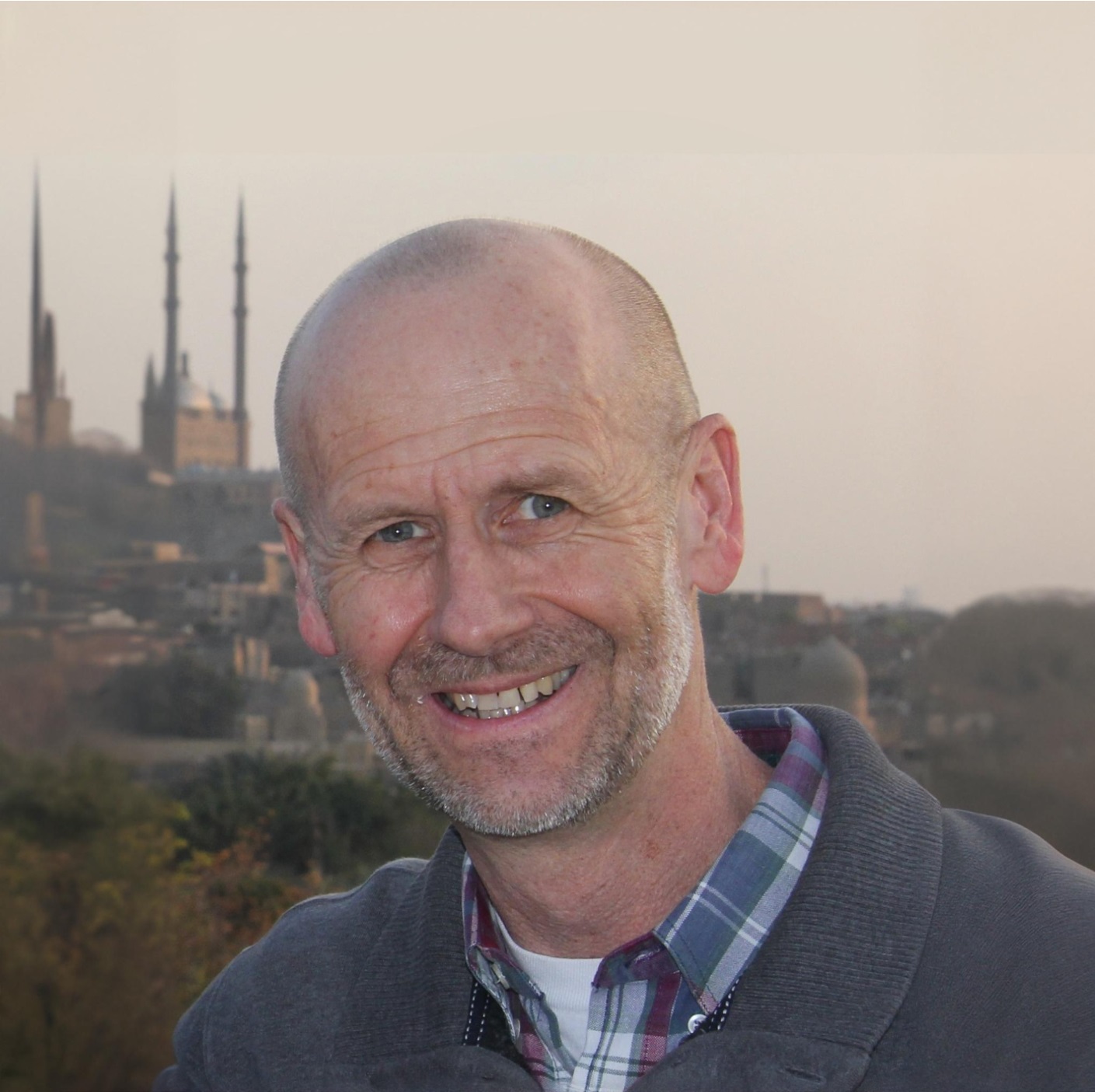
Professor, Sultan Al-Qasimi Department of History
Yasser Arafat, Chairman of the Palestine Liberation Organization, addressed the United Nations General Assembly, 13 November 1974. The invitation for him to speak at the UN, and the speech itself, are landmarks in the history of Palestinian nationalism. This talk reflects on the text and context of the speech, focusing on Arafat's interpretation of Zionist history, and his comments about the nature of the conflict over the land of Palestine.
Sunday, October 12, 2025 1-2 pm
Tim Sullivan Lounge, HUSS building
Associate Professor, Department of Political Science
The talk explores market making under conditions of widespread economic informality, applying it to a segment of Cairo’s housing market. I draw on rich ethnographic work involving a group of small developers who had actively engaged in building extra housing units on rooftops of already existing buildings in a middle- class neighborhood. I argue that marketizing informality was driven by differential embeddedness, referring to a two-pronged process of simultaneous dis-embeddedness and embeddedness of production and exchange. Informally-supplied commodities were dis-embedded from the logic and dynamics of social reproduction. Simultaneously, the market-oriented embeddedness of production and exchange into existing formal and informal systems of norms, identities, practices and relations enabled the institutionalization of the fledgling market space. Much of this process was driven by the informal developers themselves through three mechanisms: adhesive legality, social legitimization and private enforcement.
HUSS Research Seminar Series for Spring 2025
Sunday, May 4, 2025 1-2 pm
Tim Sullivan Lounge, HUSS building
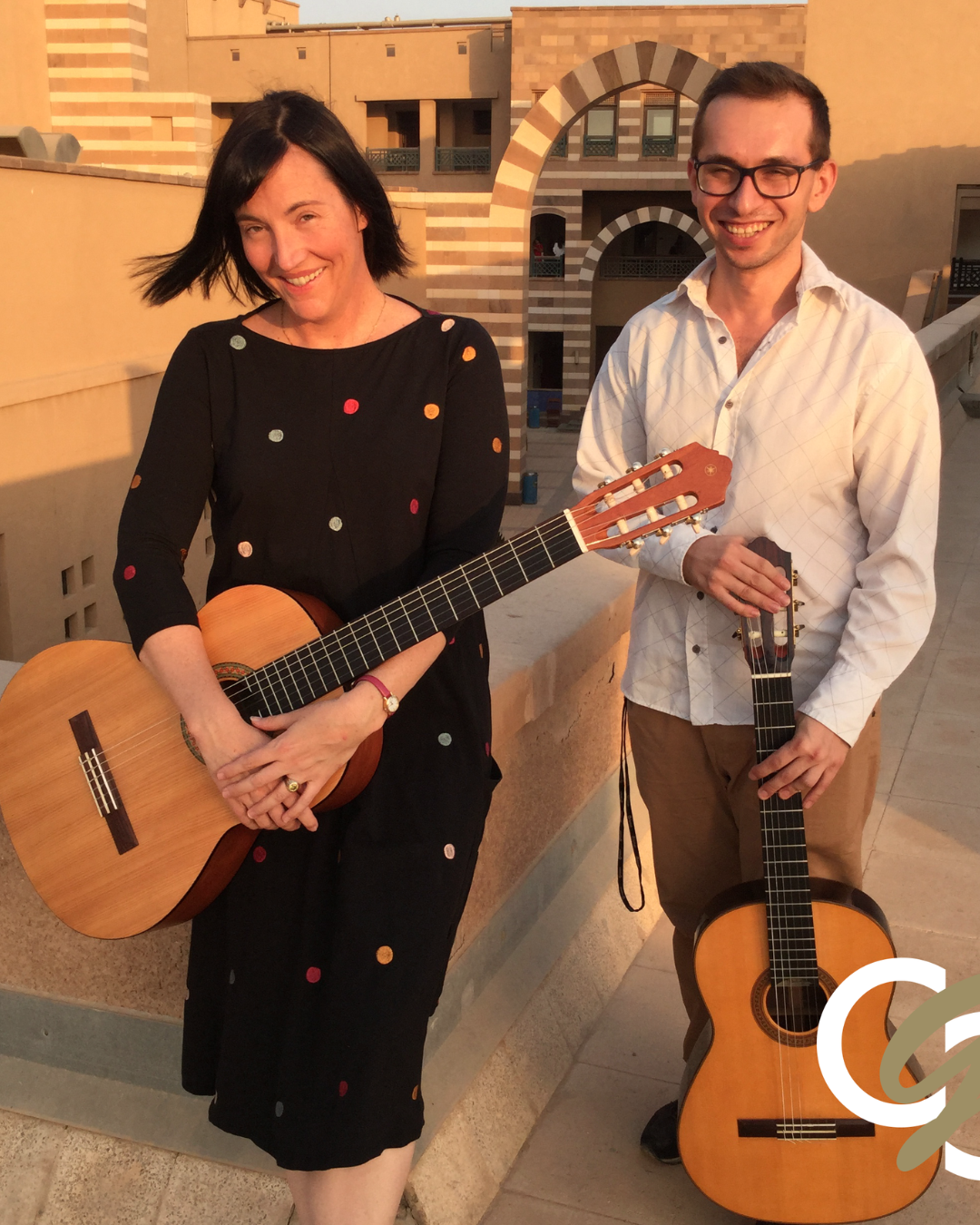
Associate Professor and the Music Program Director, Department of the Arts
Paweł Kuźma
Adjunct Professor of Music, guitarist, and composer, Department of the Arts
Alexandrians recognize Karim Frège as a leading classical guitarist and director of the Conservatoire de Musique d’Alexandrie. Yet few know him as a composer of emotionally charged, impressionistic works worthy of inclusion in the international classical guitar canon. In this performance-lecture, professors Chelsea Green and Paweł Kuźma will perform and analyze selected works by the maestro, interweaving his distinct compositional style with biographical insights into Alexandria’s musical culture.
Sunday, April 6, 2025 1-2 pm
Tim Sullivan Lounge, HUSS building
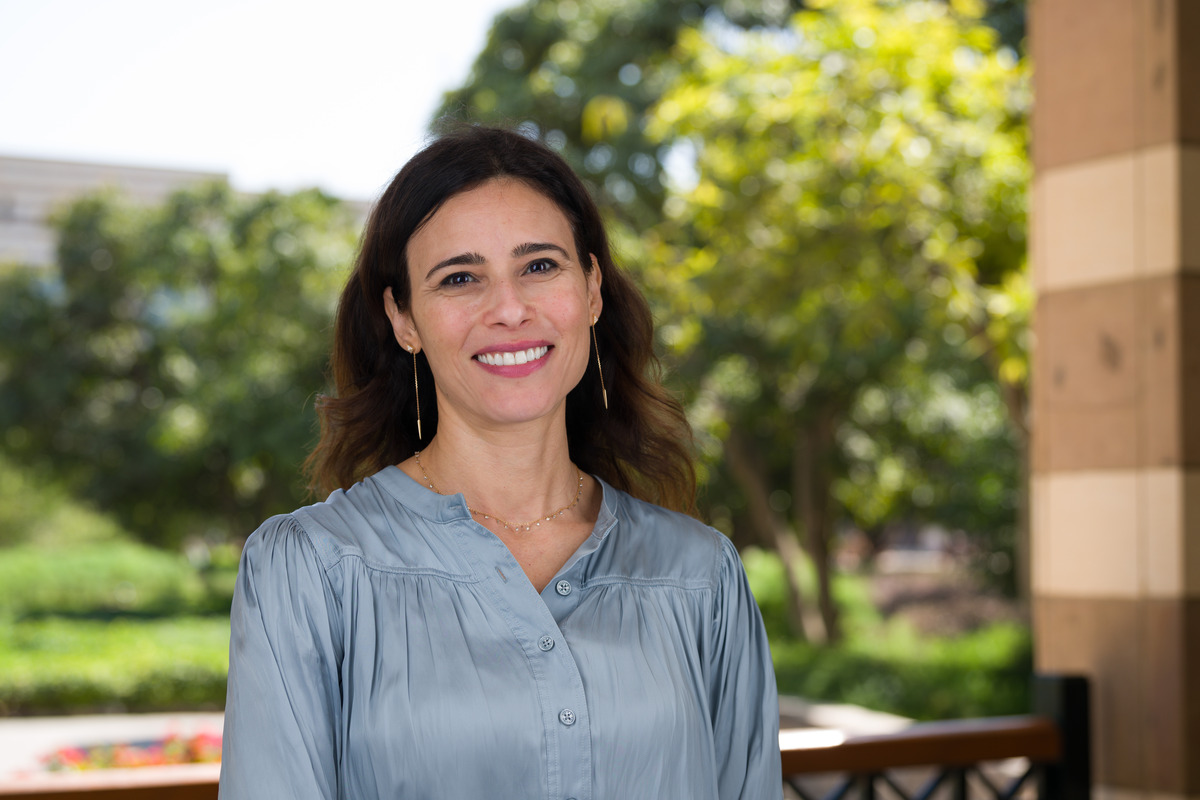
Professor and Chair of Comparative Politics, Department of Political Science
Migration from the South to the North of the Mediterranean has increased over the past decade, particularly after 2015 and the so-called “migration crisis.” During the same period, the number of autocracies has also grown. This raises two questions: Does exposure to political and social violence influence an individual’s decision to migrate? And is there a relationship between rising autocratization and migration?
Based on qualitative analysis of more than 60 semi-structured interviews with migrants from the Middle East living in Germany, I argue that autocratization measures in the MENA region over the past decade have significantly influenced youth migration from South to North.
Sunday, February 23, 2025 1-2 pm
Tim Sullivan Lounge, HUSS building
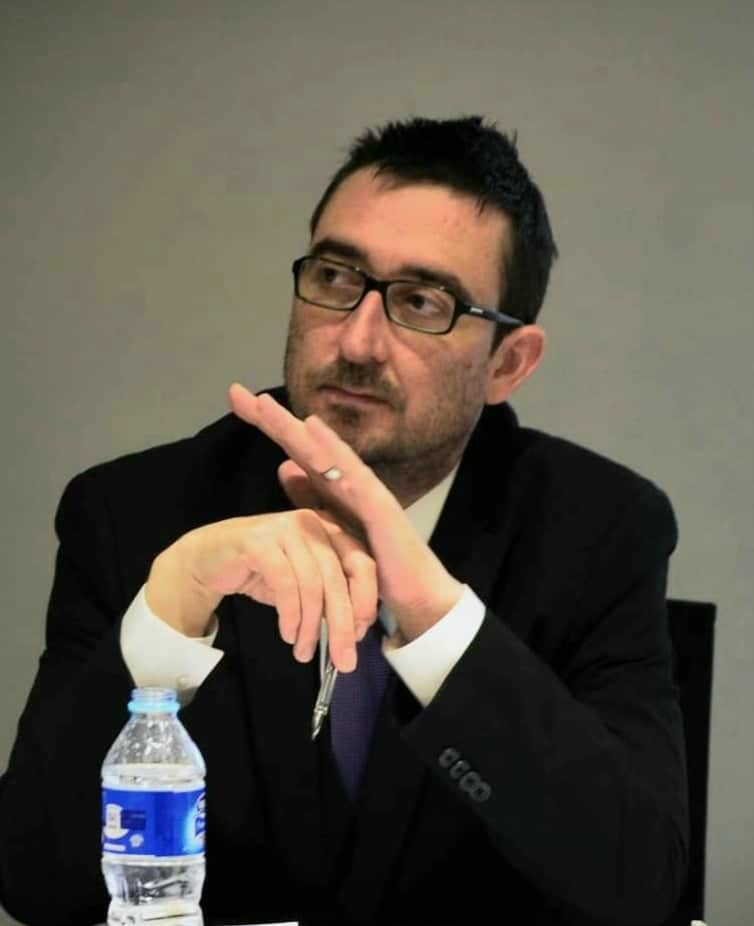
Associate Professor, Department of Law
I want to tell a story about the development of reason—legal, scientific and general—and the challenges posed by its critics: existentialists, legal realists and heretical philosophers of science. This story begins with the Enclosures, the Witch Hunts and the rise of capitalism. It traces the emergence of masculine reason, the critiques it provoked, and how these were later echoed in Freirechtsjurisprudenz and American Legal Realism.
I then shift across time and discipline to examine Lawrence Kohlberg’s “empirical” defense of masculine reason and Carol Gilligan’s critique of it. This opens the ground for reimagining reason, and specifically legal reasoning, from a feminist perspective. From there, I critique the ontology of law reified in legal theory and highlight law’s conceptual dependence on violence. I offer a formal definition of law: law is the technique by which social violence is distributed. This definition clears the way for reimagining law from a feminist perspective.
Sunday, February 16, 2025 1-2 pm
Tim Sullivan Lounge, HUSS building
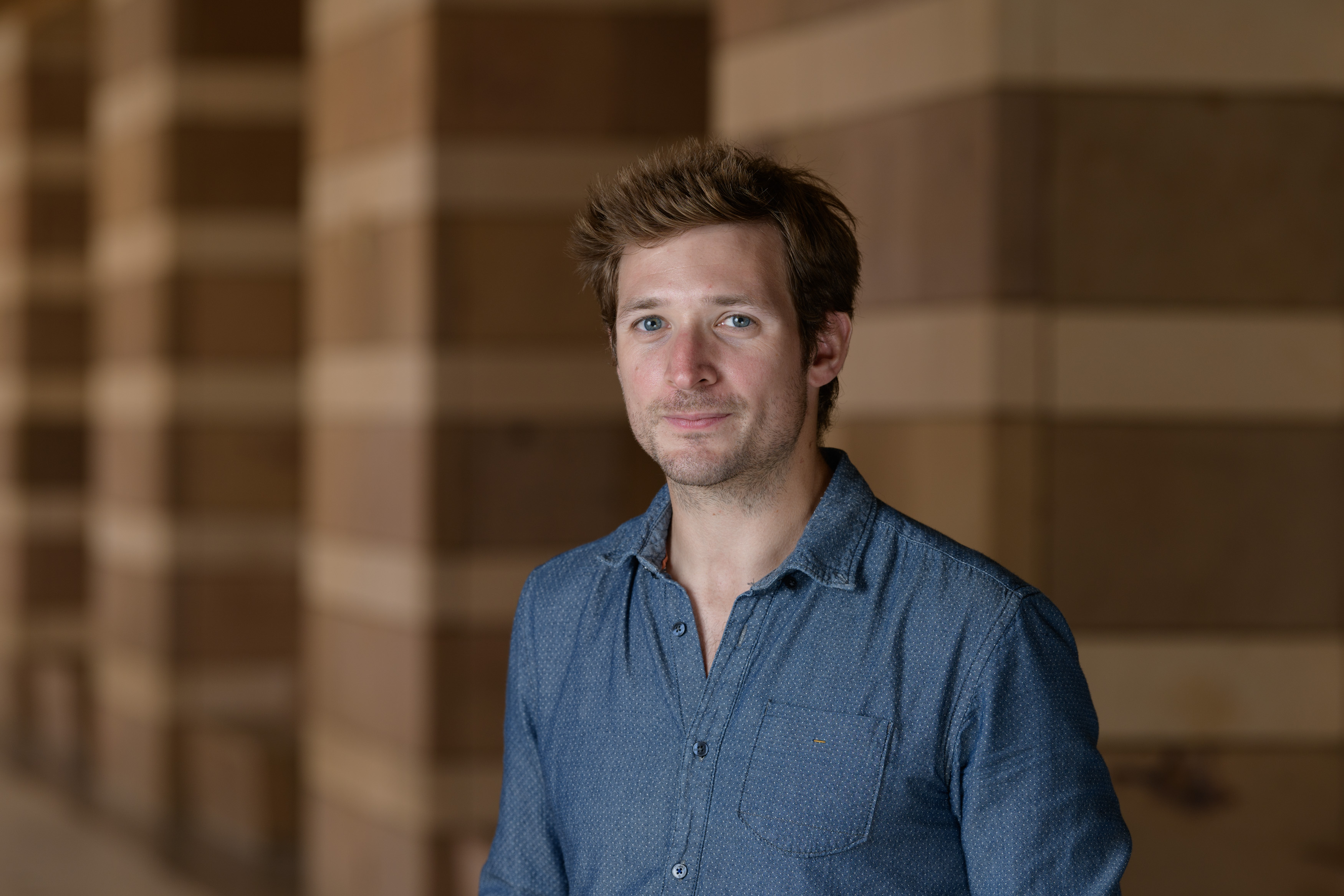
Assistant Professor of History, Sultan Al-Qasimi Department of History
Relying on 172 French expeditions launched in and around Indochina between 1862 and World War I, I demonstrate that the alliance between exploration and colonization was consistently precarious, flawed and on the verge of collapse. Often ill prepared and unreliable, explorers faced institutional interference and unpredictable encounters that turned expeditions into terrains of conflict.
My work dismantles the myth of an all-powerful, unified colonial state by examining the (mis)management of exploration. In doing so, it highlights all the actors of exploration, from administrators and explorers to intermediaries and local communities who adapted to, and at times resisted, violent incursions. Methodologically, I reflect on the potential of archival sources to shed new light on imperial history.
HUSS Research Seminar Series for Fall 2024
Sunday, November 24, 2024 1-2 pm
Tim Sullivan Lounge, HUSS building
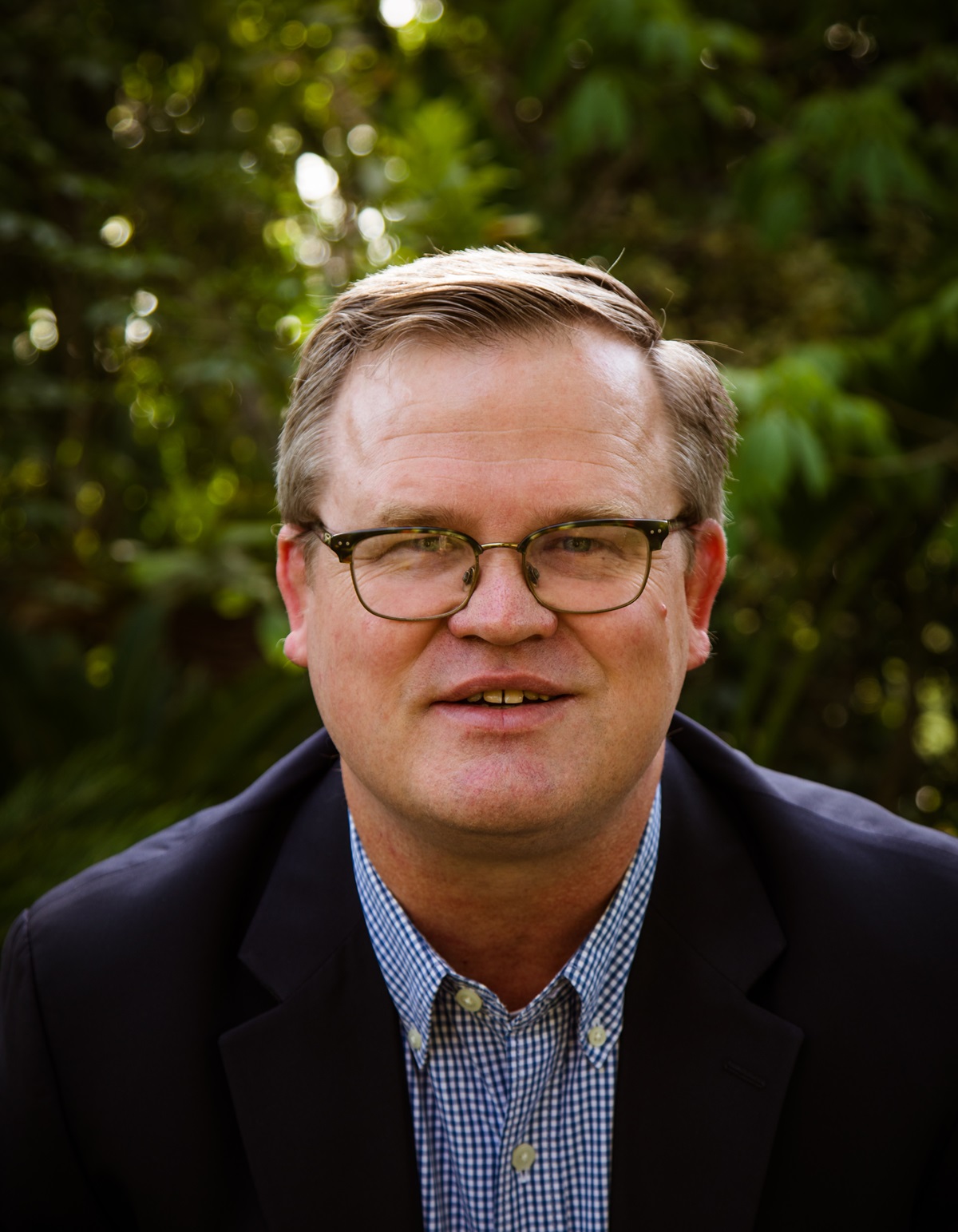
Assistant Professor and Director of Prince AlWaleed Bin Talal Bin AbdulAziz AlSaud Center for American Studies
While Gambian President Dawda Kairaba Jawara was abroad on July 30, 1981, leftist rebels led by Libya-trained Kukoi Samba Sanyang seized control of the country. Jawara rushed to Dakar to request Senegal’s military intervention to halt the putsch and reverse the coup. Once Senegalese troops restored him to power, the leaders of Senegal and The Gambia formed the Senegambia Confederation, which lasted from 1982 to 1989. There was little response to the coup from either Marxist regimes or Western-aligned African states. Why? And why could Senegal and The Gambia not make the confederation work? This paper seeks to answer these questions and argues that the Confederation endured for only seven years because Senegambian elites failed to secure popular support for it.
Sunday, October 27, 2024 1-2 pm
Tim Sullivan Lounge, HUSS building
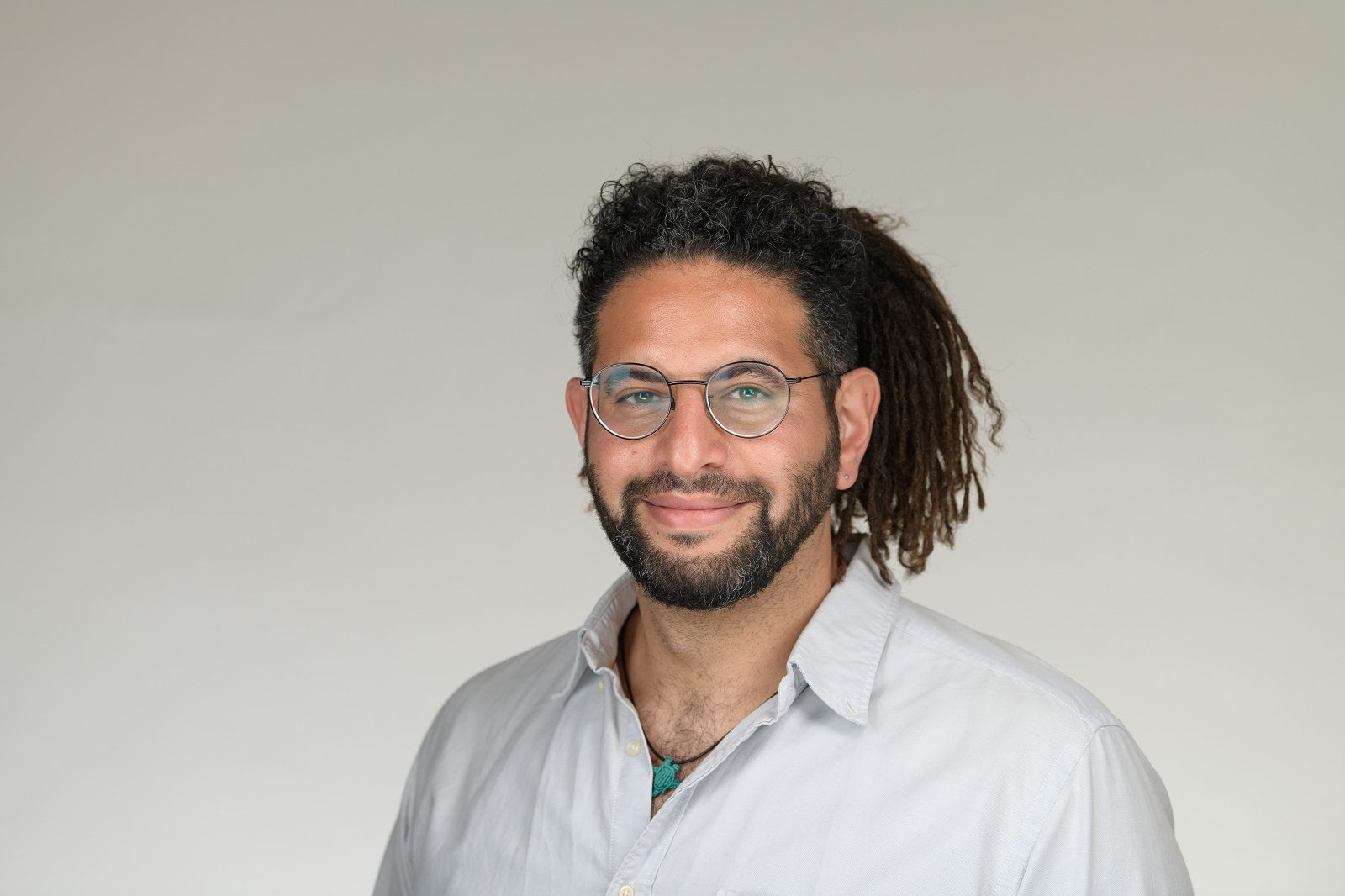
Assistant Professor and Anthropology Unit Head, Department of Sociology, Egyptology and Anthropology
In the article, professor Aly presents experiences of Egyptians who were too young to have taken part in the street protests and movement of the 2011 revolution. Today in their early twenties, they narrate their experiences during the early months of the uprising. None claimed to be revolutionaries then or now, yet they are animated by it in complex and long-lasting ways. The January revolution failed to bring about change at the level of state power. Yet, there is more at stake than the political endgame; Professor Aly, turns his attention to how people narrate the revolution as a process of ethical reflection and self-formation through everyday relationships and settings that took on new meanings. These accounts challenge notions of what it means to participate in a revolution, where it is located and generate a conversation between the anthropology of ethics and the anthropology of revolutions.
Sunday, September 29, 2024 1-2 pm
Tim Sullivan Lounge, HUSS building
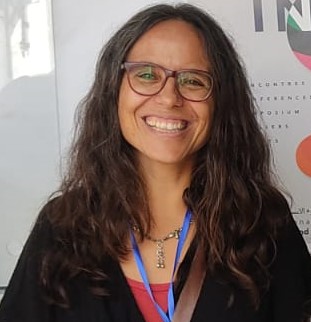
Associate Professor of Arabic Literature, Sheikh Hassan Abbas Sharbatly Department
Women were active participants in the anti-colonial revolution of 1919 in Egypt, both as nationalist and feminist activists. Yet their voices are mostly forgotten in the dominant narrative about this key moment in Egyptian history. This presentation is based on my on-going research project, which seeks to recover these women’s autobiographical narratives by looking at a wide range of texts they authored, including memoirs, articles, poems, short stories, and unpublished letters. I will address the challenges I face in locating these texts in the archive, and reflect on issues of gender and class shaping the archival collections I examined. Additionally, I will focus on a specific archival source, the letters sent to feminist and nationalist leader Huda Sha‘rawi by her peers, kept in her private papers at AUC’s Rare Books and Special Collections Library.
HUSS Research Seminar Series for Spring 2024
Sunday, May 12, 2024 | 1 - 2 pm
Tim Sullivan Lounge, Prince Alwaleed Bin Talal Bin Abdulaziz Alsaud Hall, School of HUSS
Professor and Chair, Department of Psychology
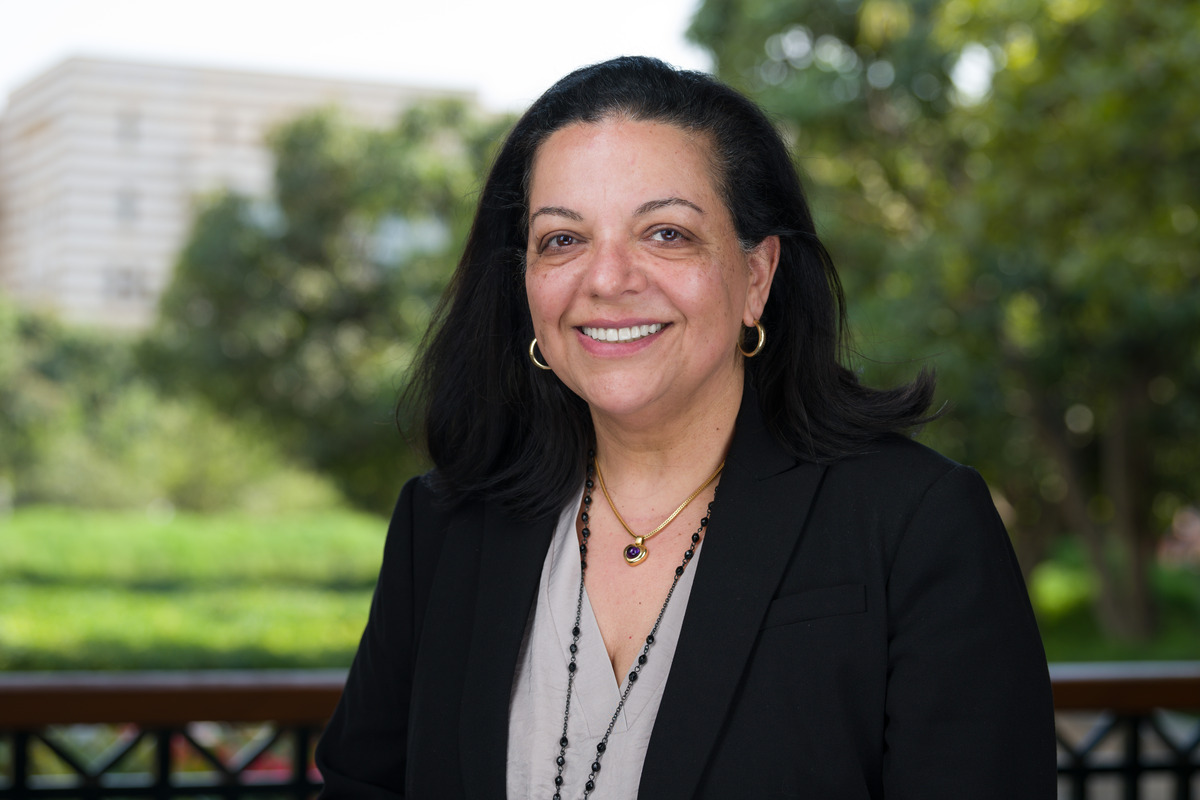
Associate Professor of Practice, Department of Psychology
This presentation describes the joys and challenges of a capacity-building initiative implemented in collaboration with UNICEF, the Ministry of Social Solidarity, the Ministry of Education, the National Council of Women, and the National Council of Childhood and Motherhood. We began seven years ago with the goal of addressing some of the systemic problems within the field of child protection in Egypt, and have now delivered the program to hundreds of social service and educational professionals.
Our approach is designed to improve competence through training and coaching/supervision focused on 1) identifying and addressing abuse and trauma, 2) providing psychosocial support to children and families, and 3) developing soft skills related to mental health and social service interventions. Our methodology includes the development of culturally relevant curricula in Arabic, with an emphasis on reflective practice, active learning, and practical application. To promote sustainability, we train and support trainers, provide a post-training coaching program, and work with supervisors. While evaluations of the interventions have indicated that both the training and coaching/supervision have improved knowledge and behavior in the field, many barriers remain. Those barriers will be discussed, along with the lessons we’ve learned about capacity-building, working with governmental agencies, and creating change.
Monday, April 15, 2024 | 1 - 2 pm
Shahab Ahmed Memorial Room #2169, HUSS Building
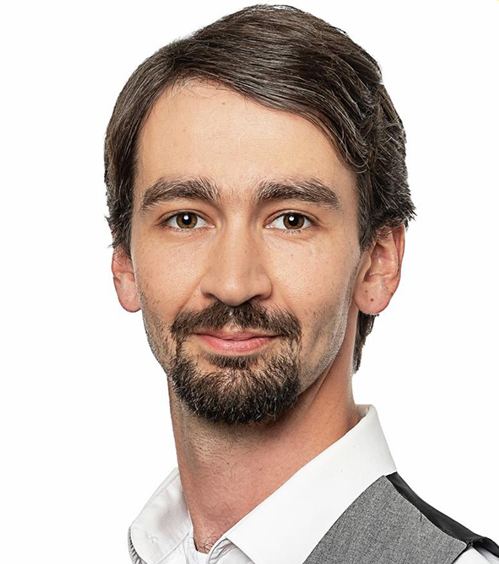
Imar Yacine Koutchoukali
Science Advisor, the Estonian Ministry of Foreign Affairs, and University of Tartu
When Islam arose, Yemen was already ancient, a region replete with age-old temples and tombs whose walls were marked with a mysterious script that few were able to read.
The ninth century scholar al-Hamdānī’s Kitāb al-Iklīl tells us how early Muslims saw South Arabia’s history. It recounts how these Muslims would stumble upon long-lost burial sites, containing the remains of ancient kings, along with inscriptions detailing how they lost their lives; an ominous warning to those straying from God’s path.
This lecture dives into the macabre world of al-Hamdānī’s qubūriyyāt or “grave stories”, looks at the socio-historical context of al-Hamdānī’s time and seeks to answer why he recounted such grave encounters.
Sunday, March 17, 2024 | 12:15 - 1:15 pm
Tim Sullivan Lounge, Prince Alwaleed Bin Talal Bin Abdulaziz Alsaud Hall, School of HUSS
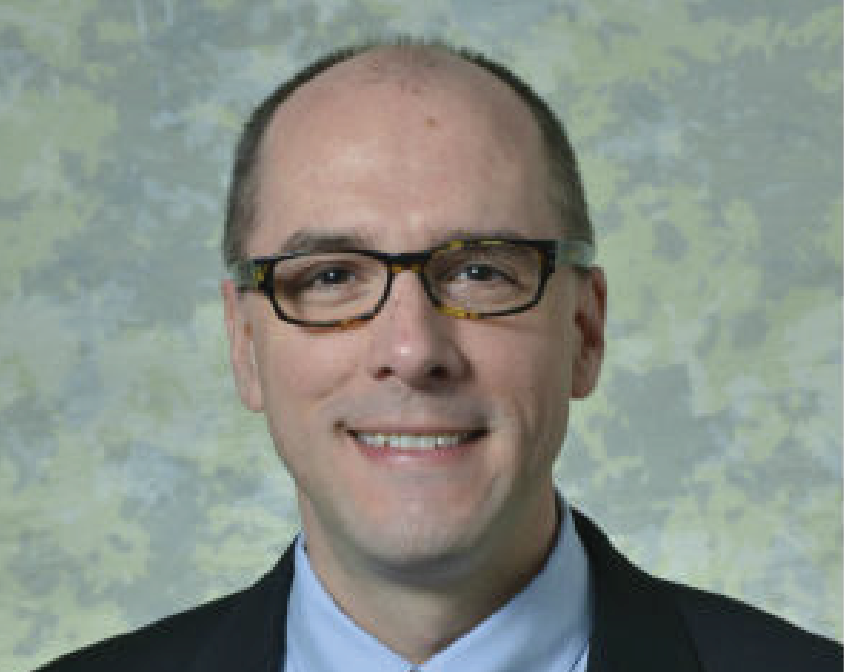
Michael Hill
Fulbright Scholar, Department of English and Comparative Literature
This talk introduces writings and translations published by Chinese Muslim intellectuals who studied at Al-Azhar University in the 1930s and 1940s. I will focus on a Book of the Sayings of Confucius (Kitāb al-Hiwār li-Kūnfūshīyūs, 1935), a translation of the Confucian Analects by Ma Jian (Muḥammad Mākīn al-Ṣīni, 1906-1978) into Arabic, as one place to consider the history of cultural exchanges between China, Egypt, and the Arab world.
Sunday, February 18, 2024 | 1 - 2 pm
Tim Sullivan Lounge, Prince Alwaleed Bin Talal Bin Abdulaziz Alsaud Hall, School of HUSS
John Baboukis
Professor,Department of the Arts
What is a performance, interpretation and composition, and what are the boundaries between them? What is a conductor, what does he do and why is he necessary? What is performance practice? In light of my work as a conductor, performer and composer, I will talk about these fundamental aspects of making music, and look at how two of my most recent compositions use classical, modern and Arab musical structures.
HUSS Research Seminar Series for Fall 2023
Monday, November 13, 2023, 1 - 2 pm
Tim Sullivan Lounge, Prince Alwaleed Bin Talal Bin Abdulaziz Alsaud Hall, School of HUSS
Ian Morrison
Associate Professor of Sociology at The American University in Cairo
National identity, like all identities, is fundamentally driven by latent internal conflicts that may become manifest in periodic moments of crisis. The ever-present conflictual nature of identity, which may be repressed through the successful deployment of narrative devices, becomes manifest when a given narrative becomes inoperative as the consequence of certain events or encounters of forces. However, the crisis is not the product of the failures of a particular narrative but a fundamental feature of identity that moments of narrative failure allow us to glimpse.
The dominant narrative device deployed in accounts of transformations of national identity is secularization. It is through the narrative device of secularization that a continuous transhistorical identity can be forged between a historical nation once defined by its essential religiosity and a contemporary society for which secularity is deemed a fundamental value and social form.
In reference to my work on the history of the relationship between religion and national identity in Québec, this presentation will examine how, within moments of crisis in national identity, religion and the secular prove crucial to conceptions of national identity. The centrality of the religious and the secular to historical understandings of identity, and the prominence of secularization in narratives of transformations of the nation provide a valuable entry to analyzing moments of crisis, struggle and transformation in national identity, and are revelatory of both the fragility and endurance of national identity. Thinking of the history of the nation in this way provides an alternative historical narrative of the nation, one in which crisis serves as the locus of dissolution, transformation and consolidation.
Monday, December 11, 2023, 1 - 2 pm
Tim Sullivan Lounge, Prince Alwaleed Bin Talal Bin Abdulaziz Alsaud Hall, School of HUSS
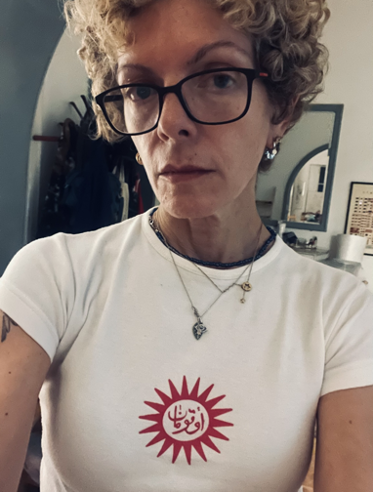
Associate Professor and Chair of the Department of History
Since 2011, Egypt has undergone such profound changes that parts of the physical landscape are unrecognizable to visitors who have not seen the country since before the uprising. Politically, economically, and culturally, boundaries have shifted. The urban landscape has changed, sometimes dramatically: in downtown Cairo alone, new landmarks have sprung up, for example in Tahrir Square, now anchored by an obelisk that refers to a past far more ancient and pervasive than that of the uprising. Elements that were part of the background have taken center stage, while features Egyptians took for granted seem never to have existed. Despite these far-reaching transformations, the past weighs heavy on the regime and the population alike, shaping horizons of possibility and limiting what may be articulated in word or deed. How, then, has heritage been imagined and produced in Egypt since 2011? In what ways has the regime co-opted the past to project itself into the future? What alternative visions of the past exist, and how have they been articulated?
| Contact Us |
|---|
The School of Humanities and Social Sciences AUC Avenue, P.O. Box 74 |
